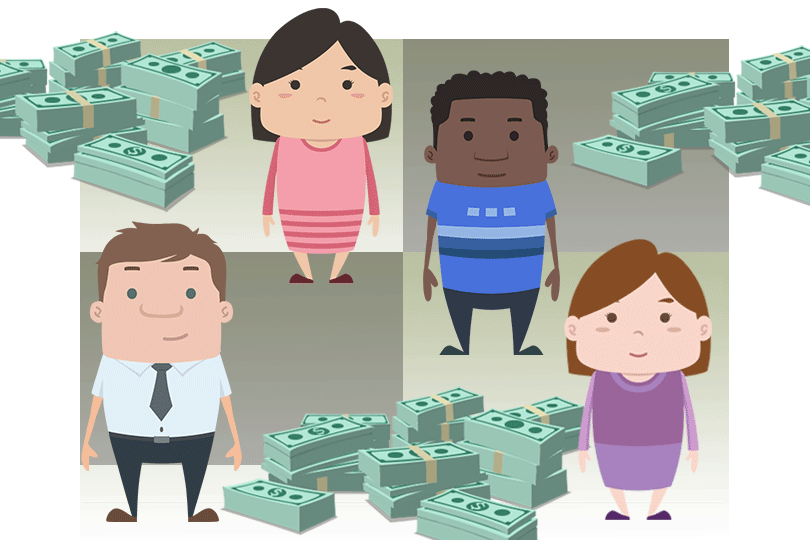When is the Right Time for an FHA Cash-Out Refinance?
December 5, 2024
One key rule is the "seasoning requirement." Think of it like a waiting period: you generally need to own your home for at least one year before you can apply for an FHA cash-out refinance. This allows you to demonstrate a stable ownership history and build some equity.
Of course, there are exceptions to every rule. Life throws curveballs, and situations like divorce or a sudden jump in your property value might shorten the waiting period. These are usually handled case-by-case, so be prepared to provide documentation to support your situation.
Connecting with an FHA-approved lender is always the best way to get the most accurate information. They can explain your situation's specific requirements and help you gather the necessary paperwork.
Building Equity: Your Home's Growing Value
Beyond meeting the FHA's requirements, it's smart to give your equity time to grow. Equity is like your ownership stake in your home—the bigger it is, the more financial freedom you have. It's calculated by taking your home's current market value and subtracting what you still owe on your mortgage.
Several factors contribute to your home equity increasing. For example, every time you make a mortgage payment, a portion chips away at your loan balance, increasing your ownership. Secondly, property values increase over time, especially in desirable neighborhoods.
This natural appreciation boosts your equity without you having to lift a finger.
Finally, strategic home improvements that add value to your property also play a role in growing your equity.
By waiting and allowing your equity to increase, you'll have access to more funds when you do a cash-out refinance. This gives you more financial flexibility and puts you in a stronger position to achieve your goals.
Why Pumping the Brakes Can Pay Off
While accessing quick cash might sound appealing, rushing into an FHA cash-out refinance soon after buying your home can have some downsides.
If you haven't built up enough equity, you might not be able to access as much cash as you need. This could make it harder to accomplish your goals, whether it's tackling those credit card balances or finally remodeling that outdated bathroom.
Remember those closing costs that come with buying a home? Well, they apply to refinancing too. Things like appraisal fees, loan origination fees, and title insurance can add up. Refinancing too quickly means paying these costs multiple times, which could affect your potential gains.
Depending on the market and your credit score, the interest rate on your new loan might be higher than your original mortgage rate. Refinancing too soon could mean paying more in interest over the life of your loan.
Finally, if you haven't had enough time to settle your finances after buying your home, taking on more debt through a cash-out refinance could strain your budget, especially if unexpected expenses come up.
By waiting and building equity, you can minimize these risks and set yourself up for a more successful refinance down the road.

FHA Loan Articles
November 20, 2024Refinancing your mortgage offers a way to cash in on your home equity, potentially reduce your interest rate, or modify your loan term. Borrowers ready to consider have options including FHA loans and conventional loans.
While both provide avenues for refinancing, each loan type may be best for specific needs and financial circumstances. What are the differences between FHA and conventional refinance options?
November 14, 2024The home you want to buy might seem perfect, or it may have a few flaws that are acceptable in the grand scheme of things. But what about issues you can’t spot just by walking through the property a few times? A home inspection provides an unbiased, expert assessment of the property's condition, uncovering potential issues that might not be noticeable to the untrained observer.
November 12, 2024Escrow is an important feature of most typical FHA loans. An escrow account is a third-party account where borrowers deposit funds designated for property taxes and other uses. Requirements to use escrow accounts typically stems from a need to protect all parties involved in the transaction
November 2, 2024When it’s time to consider buying a home, the Federal Housing Administration (FHA) offers two popular options. One is the traditional FHA purchase loan many use to buy a house in the suburbs. But not everyone wants to buy an existing property. Some want more control over the design and configuration of the home.
The other FHA construction loan option, the one-time close mortgage, comes in here. This option is for those who want to approve floor plans, have a say in the types of materials used to build the home and choose its features.
October 31, 2024When buying a home for the first time, it helps to know how long the process can take. How do you know if your appraisal report is delayed if you don’t know how long the FHA allows for the process to be completed? How long does it take to get from the final offer to closing day? A “typical” FHA loan process may take up to 45 days from start to finish. Several factors can influence this timeline.







